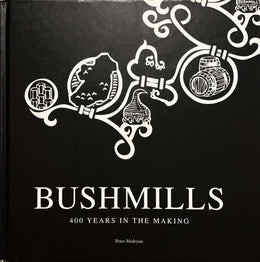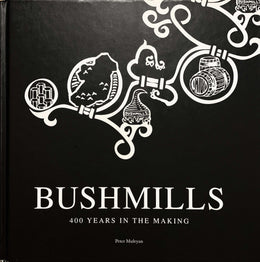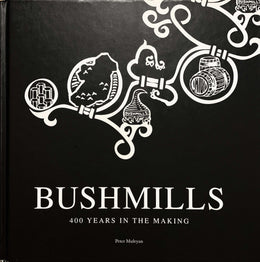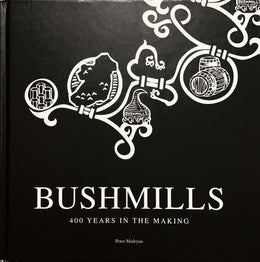Chapter 5: Orkney Days; “Orkney Stories: A specially commissioned collection by Highland Park”
Magnus Linklater is the elder son of Eric Linklater. He is a distinguished journalist who was until recently editor of The Scotsman and now contributes regularly to The Times.
I don't think I can ever recall the sea as flat, the sun as hot, and the air as lifeless as in the summer of 1989 at the time of the St Magnus Festival. Lying on the rocks at Waulkmill Bay you could hear sounds that were normally drowned out by wave and wind: the popping of seaweed, strange sucking noises from shell creatures, little bubblings from underneath the sands. Quite unnatural this weather, we all agreed, while relishing it.
Strangely, most of my distant memories of an Orkney childhood are also enveloped in hot summer days rather than driving rain or scudding clouds. Most, but not all. For there was, always, the journey from the south, and that was rarely calm.
There is a curious human trait known as Land's Enditis, whereby people experience a compulsion to reach as rapidly as possible the furthest extremity of a country, where the land runs out; and having got there, to stare gloomily out to sea before turning round and going back. For those who suffer from it, John O'Groats, on the northern tip of Caithness, is a favourite spot, and, with the final completion of the three bridges crossing the Beauly, Cromarty and Dornoch Firths, it is possible to get there quicker than ever before. Two hours from Inverness, and gratification is yours. For me, there is something almost sacrilegious about the modern speed of that journey —it is an insult to one of the most glorious and mysterious stretches of Scotland. It is not to everyone's taste, but for those who yearn for an unbroken sky and room to breathe, it is the only landscape!
And then you come to Thurso, and beyond it, Scrabster Harbour. The journey has reached its critical point. On a good day, with a clear sky and the Pentland shimmering blue, you can almost reach out and touch Orkney. The cliffs of Hoy are luminous pink, and the waves dance in the sun. But that is not how I remember it. I remember sheeting rain and louring clouds, the waves outside the harbour foam-flecked and menacing, the St Ola lurching unpredictably against the harbour-wall as men in sou'westers herded the last anxious passengers up the gangway. If the weather was storm-force the boat would sometimes take the "sheltered" route (hah!) past Flotta and through the Scapa Flow. But mostly we skirted the island of Hoy, where there is nothing between you and America except for the Atlantic. These days the St Ola is a big ship, stabilised against the worst of the seas and equipped with every modern convenience. But that is not how I remember it. I remember a pitching deck, the crash of the crockery in the galley as the big waves hit us off Dunnet Head, and the booming voice of Captain Swanson as he assured my father that there was only "a bit of a sea". And then it was all hanging over rails or lying in nauseous misery on a cabin bed. I have no childhood memory of the Old Man of Hoy, that magnificent stack of sandstone which signals the final stretch of the journey. I was, I think, always below decks, too ill to care, simply waiting for death.
But, believe me, it is not like that any more. These days I am never seasick. Is it the steadiness of the new St Ola? Is the weather gentler? Or has my stomach been steel-lined by age? Certainly it is rare these days to arrive in Stromness and hear that once traditional Orkney greeting: "Wast tha seek?"

One thing that has not changed, however, is the warmth and welcome of Orkney itself. It is not just that there is always, for me, a network of friends and relatives to make contact with. Or even that most people seem to be able to place you within a few minutes even if you have never met them before. There is, I think, an easier attitude towards strangers than any- where on mainland Scotland.
This may be because Orkney has had to get used to some fairly queer folk down the years, from Vikings to "oilies", to say nothing of those who come from the south seeking some form of spiritual regeneration. I have a friend, extremely senior in the BBC, occupying one of the most highly pressurised positions in the whole of that uneasy organisation. She has been coming back to Orkney every summer now for 20 years. It would be inconceivable to her not to come, and she believes it is the key to her sanity. I have another friend from the other end of the career spectrum, who has not been notably employed for some time, but who fits into an easy-going style of life every time he comes back, and who says that what he likes is that no one plies him with the kind of questions about what he is doing and where he is going that are routine anywhere else. Both, from their very different back- grounds, think of Orkney as a home.
And so do I. What has changed, for me, is the impact, subtle, but hugely influential, of the oil industry. And, of course, the St Magnus Festival. While Orkney has not extracted quite the same financial advantages from the industry as Shetland has, it has nevertheless enjoyed a measure of prosperity that would have been inconceivable 30 years ago. The fears of environmental disaster (fingers crossed) have not been realised, and the more hideous constructions that have characterised other parts of Scotland where development has been allowed to grow unchecked have not spoilt the landscape. Not that Orcadians themselves are noted for their architectural good taste, but at least they have not had to deal with industrial slums.
As for the Festival, it has grown in stature and pleasure year by year. It has a character of its own, which derives in part from the genial influence of Sir Peter Maxwell Davies, and the remarkable work he has done with local schoolchildren whose knowledge of modern music and strange chromatic scales must be unequalled anywhere else. But it has benefited too from the fact that it has never grown out of control, that geographically it remains small and close-knit.
I remember in particular one evening after a Scottish Chamber Orchestra concert at the Phoenix Cinema, being invited into a bar in the Ayre Hotel where a tremendous jam session was going on. There were a couple of local fiddlers, a pianist, a genius of an accordionist, and two cellists from the SCO, giving it laldy. The beer flowed, the crack was great, and the music got wilder and wilder as the night wore on. That evening conjured up a scene, imagined I think, but only just, from one of my father's earlier novels, one of the Orkney ones, where some wild but innocent young man gets mildly drunk, then involved in a fight, then makes a pass at the girl he fancies, and ends up with a black eye and a host of pleasant memories.
Nothing like that, I hasten to say, happened in the Ayre Hotel that night. But there was a good pagan feel to the evening's entertainment. I won't say it was the cultural high point of the Festival, but for me it was certainly the most memorable.
Written by Magnus Linklater
The text is an excerpt from "Orkney Stories: A specially commissioned collection by Highland Park" (pp. 34 - 36), published 1995 by Matthew Gloag & Son Limited under the commission of Highland Park Single Malt Scotch Whisky.







